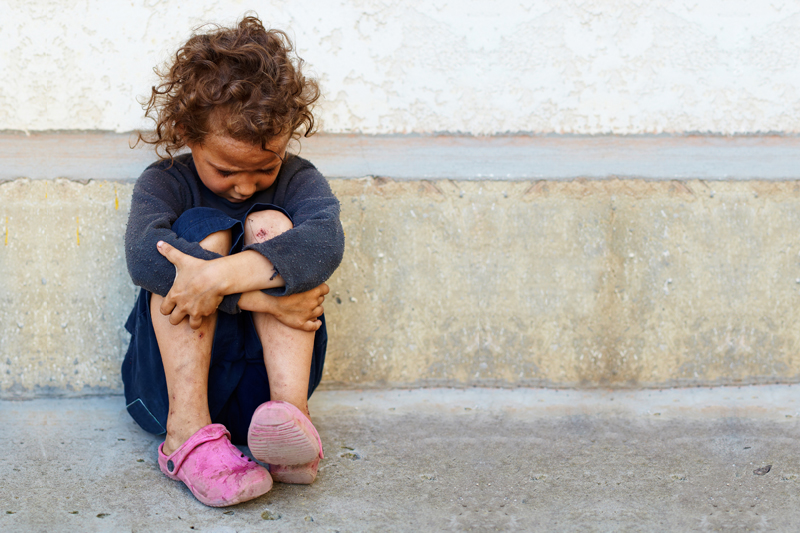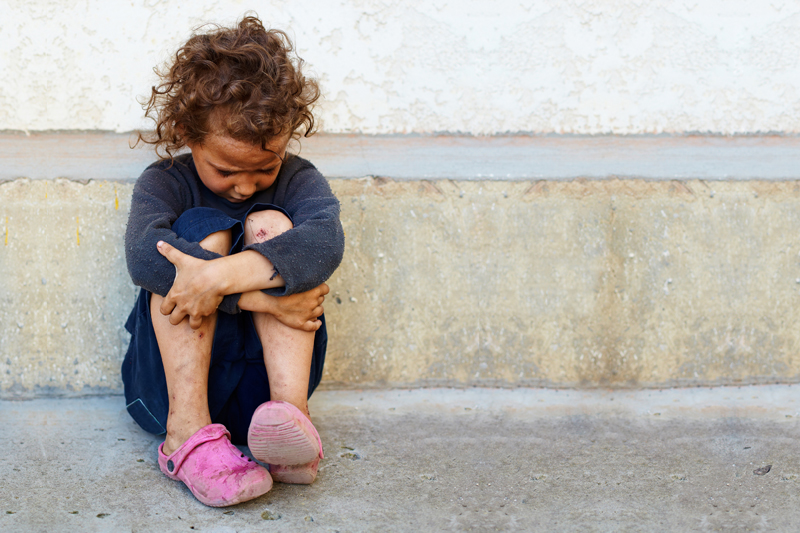Protecting Children During Natural Disasters

When a natural disaster occurs children become especially vulnerable to the risk of exploitation. This is especially true in situations where the physical infrastructures are damaged over a wide spread area. There were reports out of Haiti after the earthquake last month of ten church workers arrested January 29 by Haiti police after the missionaries tried to take 33 children (most allegedly from a Haitian orphanage) out of Haiti to the Dominican Republic. The children were supposedly being moved to a Dominican Republic Hotel that was to serve as an orphanage. The missionaries claim they were approached by a man whom requested their help. The workers were charged with kidnapping and criminal action and kept in a Haiti jail while Haiti police investigated the situation.
Some of the children rumored not to be orphans were reportedly placed or given to the church workers by one or both parents, giving the missionaries permission for the children to be taken to what they may have felt was a better place or a place that can offer better opportunities to their children than staying Haiti which is extremely impoverished. All of the workers, except for the leader of the group Laura Sibley and Charisa Coulter have been allowed to return to the United States. Whether or not the workers were indeed looking out for the well-being of the children with them will remain to be seen as the investigation continues.
Times of natural disasters are times of opportunity for child predators. This is especially true in cases where a child’s entire family may have been killed and in a country of extreme poverty where there may not be immediate help available, and where a family may not even have electricity or a phone available. In this country sometimes children are given to wealthier friends or family for money. One of these situations became apparent in a Haiti hospital where a little girl whom after being bathed and cleaned up was recognized by a man who claimed to be her uncle.
In his rush to remove the girl from the hospital, workers noticed the little girl was frightened of the man and hiding behind a worker. She was taken back into the hospital until the story could be verified. In the end part of the story was true. The little girl lived with the man who claimed to be her uncle but he was not a blood uncle but a friend of the little girl’s family who had sent the little girl to live with the man and his wife in hopes she would have a better life and the family received money for the little girl.
This situation is not unusual and children in a poor country are in danger of being taken and used as a child sex slave by a human trafficker whom only wants to sell the child for sex. This is one reason Haiti police are erring on the side of caution when determining if a child found without an adult on the street is an orphan or simply has not been found by a parent or other family member. Haitians tend to take care of their own family. If a child is found to have no family only then is he or she even considered for adoption in another country. So far according to UNICEF at least 15 children have disappeared from hospitals around Haiti and were taken by people not related to them.
UNICEF has set up child safe areas where children separated from family or unable to find family can stay and be taken care of while workers try to find extended family. These centers run by UNICEF number around 20 are receiving up to 2,000 children daily. Here at least they can be children. They have a safe place, food and can play like children should be able to do no matter where he or she lives. If you are aware of a child who may be in danger please contact your local law enforcement agency.
Some of the children rumored not to be orphans were reportedly placed or given to the church workers by one or both parents, giving the missionaries permission for the children to be taken to what they may have felt was a better place or a place that can offer better opportunities to their children than staying Haiti which is extremely impoverished. All of the workers, except for the leader of the group Laura Sibley and Charisa Coulter have been allowed to return to the United States. Whether or not the workers were indeed looking out for the well-being of the children with them will remain to be seen as the investigation continues.
Times of natural disasters are times of opportunity for child predators. This is especially true in cases where a child’s entire family may have been killed and in a country of extreme poverty where there may not be immediate help available, and where a family may not even have electricity or a phone available. In this country sometimes children are given to wealthier friends or family for money. One of these situations became apparent in a Haiti hospital where a little girl whom after being bathed and cleaned up was recognized by a man who claimed to be her uncle.
In his rush to remove the girl from the hospital, workers noticed the little girl was frightened of the man and hiding behind a worker. She was taken back into the hospital until the story could be verified. In the end part of the story was true. The little girl lived with the man who claimed to be her uncle but he was not a blood uncle but a friend of the little girl’s family who had sent the little girl to live with the man and his wife in hopes she would have a better life and the family received money for the little girl.
This situation is not unusual and children in a poor country are in danger of being taken and used as a child sex slave by a human trafficker whom only wants to sell the child for sex. This is one reason Haiti police are erring on the side of caution when determining if a child found without an adult on the street is an orphan or simply has not been found by a parent or other family member. Haitians tend to take care of their own family. If a child is found to have no family only then is he or she even considered for adoption in another country. So far according to UNICEF at least 15 children have disappeared from hospitals around Haiti and were taken by people not related to them.
UNICEF has set up child safe areas where children separated from family or unable to find family can stay and be taken care of while workers try to find extended family. These centers run by UNICEF number around 20 are receiving up to 2,000 children daily. Here at least they can be children. They have a safe place, food and can play like children should be able to do no matter where he or she lives. If you are aware of a child who may be in danger please contact your local law enforcement agency.

Related Articles
Editor's Picks Articles
Top Ten Articles
Previous Features
Site Map
Content copyright © 2023 by Erika Lyn Smith. All rights reserved.
This content was written by Erika Lyn Smith. If you wish to use this content in any manner, you need written permission. Contact Erika Lyn Smith for details.



